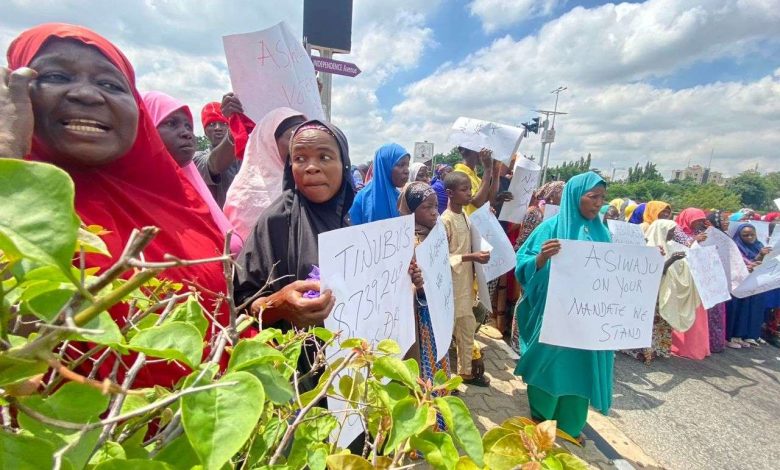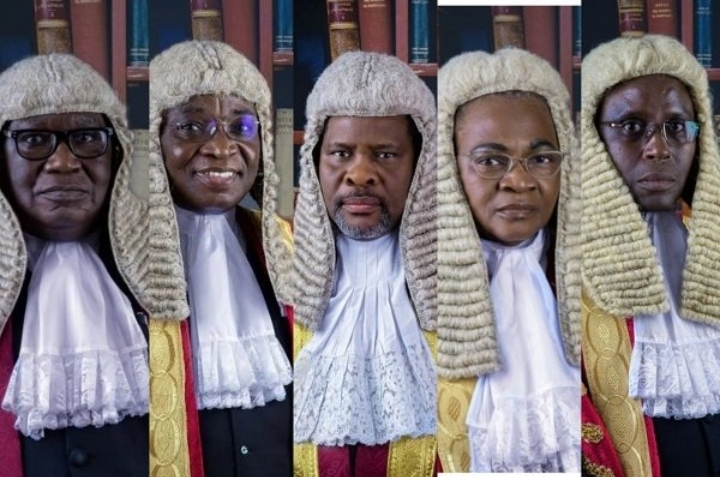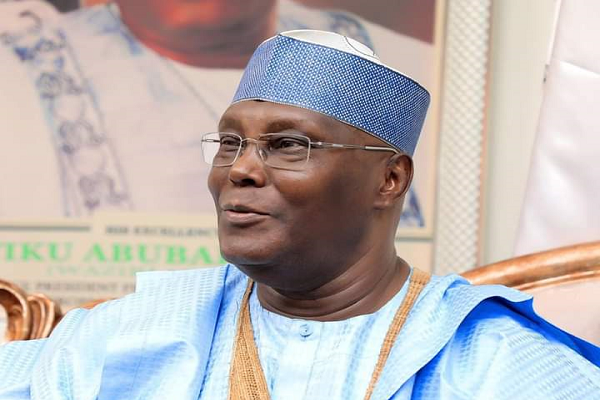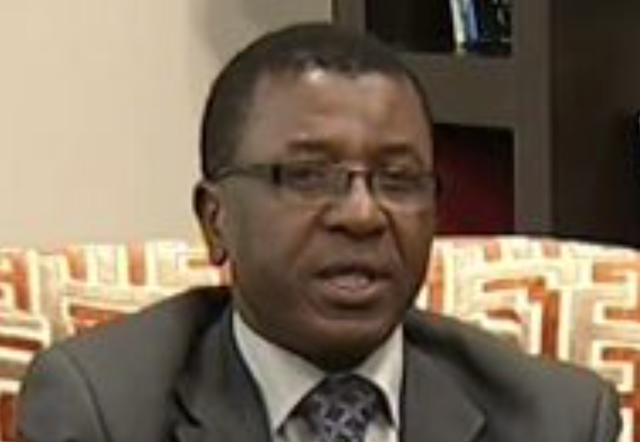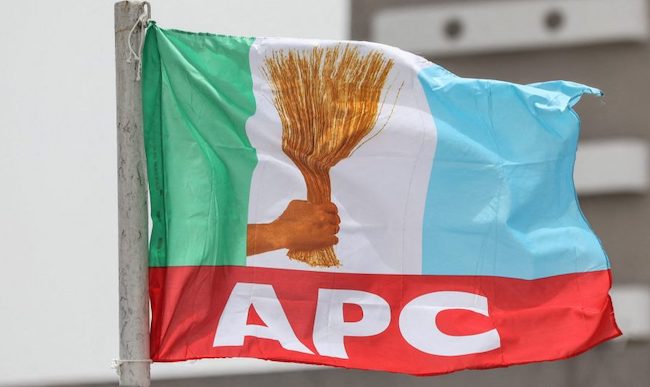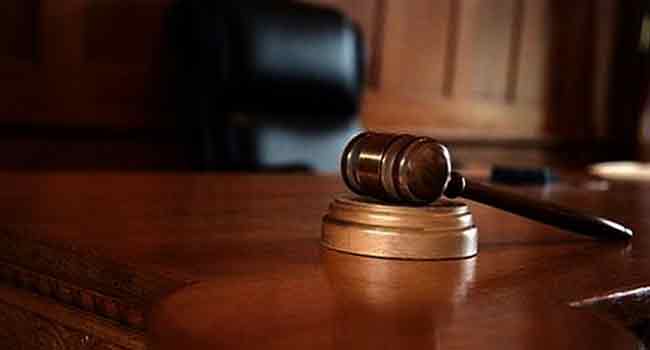By Wandoo Sombo
Now that the petitioners have closed their cases at the Presidential Election Petition Court, (PEPC), one can only wonder what strategy the respondents would employ to defend the legitimacy of President Bola Tinubu’s presidency.
Well patience, they say is a virtue so Nigerians wait patiently as the respondents open their defence on July 3.
On that day all attention at the PEPC will shift from the petitioners to the respondents; President Tinubu, Vice-President Kashim Shettima, the Independent National Electoral Commission, and the All Progressives Congress, (APC).
The Petitioners are Labour Party (LP) and its presidential, Mr Peter Obi, Allied Peoples Movement, (APM) and Peoples Democratic Party (PDP) and its candidate, Alhaji Atiku Abubakar
They are expected to deflate all the arguments the petitioners have canvassed before the five-member panel of justices of the court headed by Justice Haruna Tsammani.
The tables would flip and it would be the petitioners turn to cross-examine the witnesses that would be called by and the respondents.
Counsel to INEC, (the first respondent), Mr. Abubakar Mahmoud, a Senior Advocate of Nigeria had told the court at the pre-hearing stage that his client, who conducted the disputed election, would call five witness.
Mahmoud told the court he would require seven days to call the five witnesses to defend his client’s conduct of the election.
Mr Roland Otaru, also a Senior Advocate of Nigeria, arguing for President Tinubu and Vice-President, Kashim Shettima who are the second and third respondents, said that his team would call 21 witnesses in nine days to defend their clients’ challenged victory.
This number Otaru, however, said would exclude expert witnesses.
Speaking for the APC, Mr Adeniyi Akintola, another Senior Advocate of Nigeria, said his client needed only nine days to call its seven witnesses, excluding subpoenaed witnesses to defend the victory of the ruling party at the polls.
For the petitioners, it had been three weeks of drama, fireworks, some boring sessions and friendly banter between the bar and the bench to prove their allegations of electoral malpractice.
The three petitioners eventually drew the curtain on their cases after calling a total of 41 witnesses; 27 for the PDP and its presidential candidate, 13 for LP and its presidential candidate and one for the APM.
The APM was the first to call its witnesses and wrapped up on June 21 after the case had stalled for about three weeks.
This was due to the petitioner’s inability to obtain a Supreme Court judgment of May 26 that was to determine whether the petition had life or was dead on arrival.
When counsel to the party, Mr Gideon Idiagbonya eventually got hold of the judgment, he told the court there was nothing in the judgment to stop his client from continuing with the petition.
In the judgment, the apex court had dismissed the PDP suit which sought the nullification of the presidential election on the grounds of double nomination of Shettima.
The petitioner proceeded to open and close its case on June 21 after calling one witness, Ms Aisha Abubakar.
Abubakar told the court that she was a politician and the Assistant Welfare Officer of the APM, (the petitioner).
Under cross examination, she told the court that she wasn’t privy to when INEC got the notice of substitution for Borno Central Senatorial District for the APC.
The witness told the court that she was aware of the Supreme Court judgment delivered on May 26.
The APC, through its counsel, Mr Wole Olanipekin, a Senior Advocate of Nigeria, tendered a copy of the judgment in evidence.
Idiagbonya, objected to the admissibility of the document in evidence but reserved his reason for objecting to the admissibility of the judgment until the final address stage.
Olanipekin made the witness read part of the judgment highlighting the part where the apex court affirmed the judgment of the Court of Appeal that said both the president and vice-president were qualified to contest the election.
The PDP and its presidential candidate, Alhaji Abubakar Atiku untilised their 21 days judiciously, calling 27 out of the 100 witnesses they had earlier touted to establish that the Feb. 25 presidential was won by them.
One of the witnesses was Sen. Dino Melaye, the party’s governorship candidate for Kogi in the Nov. 11 governorship election.
Melaye, the 23rd witness and dubbed a star witness of the petitioners, told the court that the final result of the presidential election announced by INEC was wrongly computed.
Led in evidence by the petitioners’ lead counsel, Mr Chris Uche, a Senior Advocate of Nigeria, Melaye, who told the court that he was PDP’s National Collation Agent, identified himself as a businessman and a politician.
Under cross-examination by INEC lawyer, Melaye said that he refused to sign the final result announced by INEC chairman, Yakubu Mahmood, because of the wrong computation of the figures.
“The results were wrongly computed and announced. That was why I refused to sign. I don’t endorse fraud,” Melaye said.
He also said that he walked out of the national collation centre before the end of the process as the national collation agent of the petitioners when he discovered what he described as fraudulent activities going on at the centre.
He also said his party rejected the outcome of the poll on the ground that the results brought to the national collation centre by state electoral officers were at variance with the results recorded in the states.
Melaye added that the results declared by INEC were also at variance with the ones computed from copies of the result sheets uploaded on IReV, an online portal designed to receive polling units result sheets real-time.
The witness said that he had three major grouses with the conduct of the election one of which was the refusal of INEC to transmit the election results electronically to its portal.
He said the Electoral Act 2022 mandated INEC to electronically transmit election results from polling stations to INEC’s IReV portal.
Under cross examination by Tinubu’s counsel, Akin Olujinmi, Senior Advocate of Nigeria, Melaye said the failure of INEC to transmit results from Form EC8As to its IReV was an infringement on the law.
Another witness of the petitioners, Mr Hitler Nwala told the court that INEC deliberately deleted presidential election results from the Bimodal Voter Accreditation System (BVAS) machines.
Nwala, a digital forensic analyst who was testifying as the petitioners’ 26th witness said he inspected 110 BVAS machines used during the presidential polls in the FCT.
He insisted that all the machines he inspected had their data deliberately removed.
However, during cross-examination, Mahmoud, counsel to INEC, faulted the report of the witness.
Mahmoud said 110 BVAS devices examined by the witness were not sufficient sample size to establish the allegations against the commission.
The LP and Peter Obi had said during the pre-hearing session that they would call 50 witnesses to convince the court that the presidential mandate was stolen from them.
They ended up calling 13 witnesses one of whom was Ms Clarita Ogar who claimed she was a staff of Amazon.
When Ogar, the 7th witness was called, the impression given was that she was a cloud engineer for Amazon Web Services Incorporated.
However, in the course of her testimony, it was established that she was not in court on the mandate of the Amazon Web Services Incorporated, where she works as a cloud engineer and architect.
The witness, who was led in evidence by the counsel to the petitioners, Mr Patrick Ikwueto, SAN, told the court, under cross-examination by Mahmoud that the subpoena in respect of the petition was served personally on her and not through her employer.
“The Subpoena was not delivered to Amazon, but delivered to me. I am here as an expert witness, I am not here on the mandate of Amazon and, it is not true that am here as a Labour Party activist,’’ the witness said.
In response to a question by counsel to the APC, Mr Lateef Fagbemi, Senior Advocate of Nigeria, the witness insisted that there were no technical glitches on Feb. 25, when the presidential election was conducted.
Other witnesses were presiding officers of INEC who were subpoenaed and in their testimonies. They told the court that they were not happy in the course of their duty when the BVAS machines failed to transmit results on election day.
Some of the witnesses specifically said that it was only the presidential election results that refused to upload.
It is also worthy of note that the petitioners had subpoenaed the Chairman of INEC, Prof. Yakubu Mahmood.
Mahmood responded to the subpoena by producing some documents through two senior officials of the commission.
Mr Lawrence Bayode, Deputy Director, Information and Communication Technology had told the court that some documents requested by the LP and its candidate did not exist.
The petitioners are amongst others, challenging the outcome of the presidential election on the grounds that as at the time Shettima, became the vice presidential candidate, he was still the nominated candidate of the APC for the Borno Central Senatorial election.
They are equally challenging Tinubu’s eligibility to contest the presidential election, alleging that he was previously indicted and fined the sum of $460,000.00 by the United States District Court.
The petitioners also say that the election was invalid by reason of corrupt practices and non-compliance with provisions of the Electoral Act, 2022.
In the weeks ahead, the onus will be on the defendants, using their facts, to prove the petitioners wrong.
NAN
